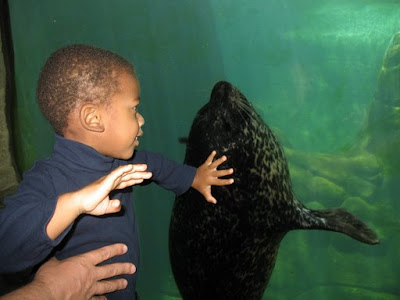On Teaching Children About Science

As a father of a very curious and active three year old who loves animals, I thought this was very good advice from E.O. Wilson:
The worst thing you can do to a child, in my opinion, is take them on a hike through a botanical garden where there are the names of the trees on the side. Rachel Carson once said, so true, take the child to the seashore, turn her loose with a pail, and tell her to go explore the tidepools. Don't tell her the names of any of these things. Let her find them, let her touch them, let her bring them to you, talk about them, and then you give her the name.
These squeezed-in lives of children who are taken occasionally to a park like that or a zoo to see the labels is all part of what I like to call -- I hope I'm not offending anyone -- the "soccer mom syndrome." I believe that soccer moms are the greatest enemy in modern life of natural history and proper biological education.
Read the report here.
In defense of soccer moms, I must add that my son's inevitable question when exposed to a new animal is "What's its name?"

Comments
from the end of page 25 to the start of page 28 in the book No Ordinary Genius, Feynman offers an account of his father guiding him to ask questions about the birds in the woods rather than simply attempting to name them all like his classmates' fathers did.
his father tells him... "You can know the name of that bird in all the languages of the world, but when you're finished, you'll know absolutely nothing whatever about the bird. You'll only know about humans in different places, and what they call the bird. Now, let's look at the bird and what it's doing."
So, no, its not a problem with the stereotypical soccer moms... its a problem with the way our entire educational system and society approach science as a collection of facts rather than a means of inquiry
The curiosity of children is so inspiring. One of my favorite Montessori slogans is, as you would expect from Montessori, in the voice of a child: What I learn is mine forever.
"I found out later, but not from him, that to be able to talk to other people, so that they knew which thing you were talking about, you had to know the name of it!"
I hesitate to say that one is more valuable than the other, as they are ultimately complementary. They are not, however, both "science."
I look forward to teaching my six-year-old how to use field guides, the internet, and more technical books to find out the names of things for herself. IMHO, that research is part of science, as it often turns into a one-thing-leads-to-another adventure.